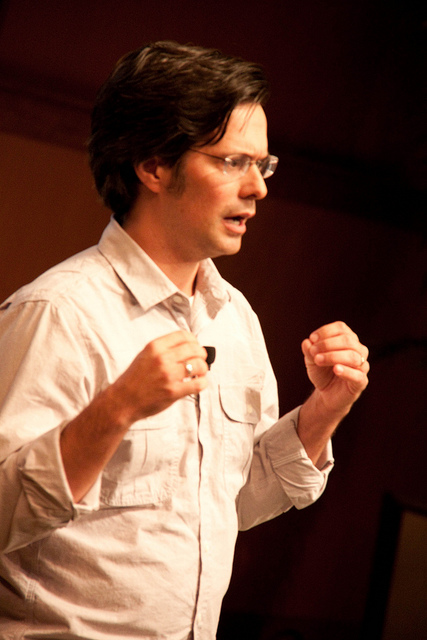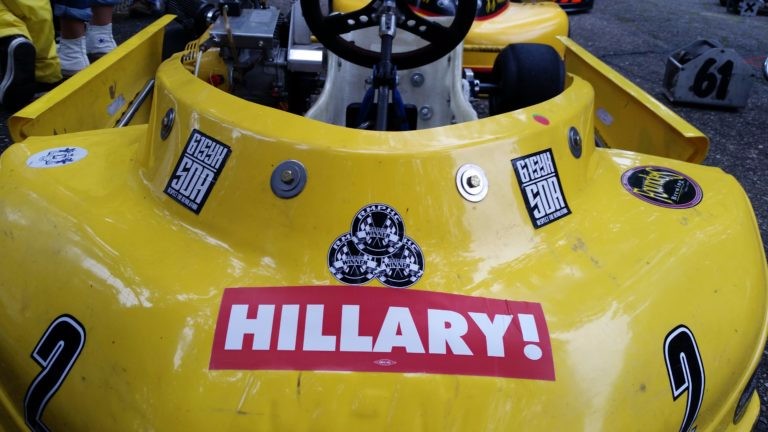I’m a centrist Democrat, so I really liked Hillary, and I wanted her to be president. She lost, so it’s time to deal with the reality of a Trump presidency.
I don’t want to spend a ton of time analyzing why Clinton lost, but it’s important to consider at a high level, because it provides context for what comes next.
First of all, she wasn’t cheated (not even by Comey). She lost fair and square. It was very close (especially considering that she won the popular vote by nearly 2 million votes), but ultimately, the Clinton campaign made some critical mistakes:
- The average American didn’t know what Clinton stood for, other than not Trump. I think she would have been better served using language like this: “I trust the American people to determine which one of us is more fit to lead this country, so I want to talk about …” and then talk about something – anything – positive. Probably jobs. Always jobs.
- The Clinton campaign didn’t campaign enough (or effectively) in Wisconsin, Michigan, and Pennsylvania. Easy to see in hindsight, but some pretty smart people (Michael Moore, Nate Silver, …) were actually pretty loud about it in the last three months of the campaign.
Ah well. Water under the bridge. It’s time to move on.
Wait – here’s one thing that doesn’t matter: If Trump had won the popular vote and lost the electoral vote, he probably would have thrown a never-ending tantrum, and we’d be in a year-2000-election-like clusterfunk right now. Does. Not. Matter.
What matters to me is the way our country responds to this moment. On election night, when I came to the sinking conclusion that Trump would be our next president, I kept imagining future American History books … we clearly just started a new chapter with a single-word heading: TRUMP. In fact, we’ve only just experienced the introduction to that chapter. We have no idea yet what the chapter itself is going to say.
So what does this moment say about our country? How should we respond? Here’s some more context, this time from Slate Star Codex on the eve of the election:
I suggest people precommit to their views on politics and society now. We live in a country and a world where Hillary can be at about 47% and Trump at about 45%. This is pretty much all you need to know. It suggests that a lot of people are willing to support a nationalist candidate, and a lot of other people really hate that candidate. It suggests that political fundamentals are totally compatible with a situation where either Trump or Hillary could win based on noise in the electoral process.
This was really good advice, but I didn’t see this post before the election, and I’m not sure that I would have listened. One bright spot of this stinging loss (for me personally) is that it forced me to ask these kinds of questions and come to the realization Slate Star Codex makes above: this is who we are and this is the country we live in.
Our country is obviously complex enough that it’s impossible to boil down our cultural and political differences to Just One Thing … but this October column from David Wong at Cracked does a surprisingly good job. In short: our underlying differences have a lot to do with Country vs City.
The results of the election support this. The biggest difference between the performance of Obama and Clinton is that Obama didn’t do as poorly in rural counties. He still lost most of them – just not as resoundingly as Clinton did (again, I think this was first and foremost a failing of the Clinton campaign, not an indication of demographic realignment or nefarious forces).
A rural/urban divide rings true to me personally as well – Clinton’s message just didn’t resonate with the working class people I know, especially those who live outside cities – or leave the city as often as possible to hunt, fish, race, etc. I even know several life-long union Democrats who didn’t vote for Clinton, which seemed unthinkable four years ago.
I don’t think Trump’s policies will actually help the working class, but at least Trump made them feel heard. Clinton did not. In fact, her deplorables comment had the opposite effect – I’m sure many working class people reasonably wondered, “Is that how she thinks of me?” Not a winning strategy.
The good news for Democrats – I’m trying to stay positive here – is that this was more of a campaign mistake than a policy mistake (or a demographic inevitability). Better jobs policies can and will win back these voters in future elections.
It’s intellectually lazy to blame this election on racist or misogynist voters. There will always be some degree of racism and sexism in our country, but it’s been getting better for decades, and it will continue to get better (just not in a straight line). We’re still the same country who elected and re-elected a black man with Hussein as a middle name. We nominated a woman who almost won – and there was shockingly little talk on either side about her being “weak” or any other stupid female stereotypes. In the end, people voted – as they always do – for the candidate who they thought would make their own lives better. A large group of voters felt listened to and understood by Trump. Those same voters felt vilified by Clinton.
Those people didn’t vote for Trump because he was the better candidate for white nationalists – they voted for Trump because he was the better candidate for the working class, for them. The fact that Trump happened to be the better candidate for racists was irrelevant – numbers-wise, the white nationalist vote itself was and is insignificant (Slate Star Codex makes this argument quite convincingly – Democrats, PLEASE read this).
The furor around white nationalists turned out to be a brilliant diversion (whether that diversion was intentional or not is a separate debate). Overt racism is not OK for most Americans. If white nationalists make up less than 5% of our population, that means 95% of our country has no inclination to put on bed sheets and burn crosses. But many good people still live in a pretty segregated world. The way you talk about and think about people of color is different if you don’t actually know or interact with many people of color.
My son goes to a school where only half the kids share the color of his skin. We live in a pretty white neighborhood, but thanks to Gus’s schooling, people of color aren’t other to him. His closest friends are truly diverse.
If you attend schools and churches that are mostly white, you’re obviously not going to know as many people of color – they will be more other to you. The letters sent home from the principal and the sermons you hear on Sunday will be less likely to use strenuously inclusive language like people of color, because the community is less diverse. They simply have less experience with people who don’t look like them.
Living in a mostly white community doesn’t mean you’re a racist. It probably means that you don’t use the same language to talk about race as someone who lives in a more diverse community. It probably means that race isn’t the most important issue on your mind most of the time. If your economic prospects are crap, you’d probably even resent programs that appear to help other communities more than your own (and it certainly wouldn’t take much effort to stoke those resentments).
If you know in your heart you’re not a bad person – and you believe that being racist makes you a bad person (a belief that’s a good sign if you think about it) – then I bet it would really make you mad to call you a racist. That’s pretty much what Clinton did with her “deplorables” comment. That’s pretty much what her most vocal followers did on Facebook and Twitter over and over as well. This did not help. In fact, many of you are still doing it – PLEASE STOP. Besides being rude, it’s a horrible political mistake. It’s ineffective. Again, in retrospect, this was a brilliant diversion – Trump got us off our game. We allowed ourselves to be snookered by a master at controlling the conversation. (Yes, Trump is good at some things – uniquely awesome in fact – go read or watch Ender’s Game if you want to learn how to defeat someone who’s really good.)

Obviously, racism sucks. As I’ve mentioned before, fighting the systemic racism of voter suppression is the reason I became a Democrat. We should oppose any policy that fosters racism. We should call out hatred and racism and injustice wherever we see it. But we shouldn’t use racist as a casual epithet for those who disagree with us.
In fact, we should rarely be judging what people are – instead we should be focused on what people do. Do I think Governor Kasich is a racist? No, I don’t … but he supported policies that made it harder for black people to vote, and I’m going to oppose those policies. He did so knowingly and as a cold political calculation, because he thought it would help more Republicans get elected; therefore, I’m going to oppose him politically, and I’m going to oppose the Republican party politically. That means I’m on the other team – it doesn’t mean I think he’s evil. Just as I can acknowledge “nice play” when the other team scores a touchdown in a football game, I can acknowledge “nice policy” when Republicans do something that makes our country better (invest in infrastructure? Yes, please!).
The beauty of representative democracy is that we’re not just spectators – we’re part of the game. We determine which team wins by voting. Elections matter – I would have greatly preferred Clinton’s cabinet picks and judicial appointments as well as her policies – but even after an election, we influence the game by supporting or opposing individual policies, regardless of who’s in power.
Politicians want to be reelected, so they’re going to support policies that their constituents support. For example, even though many Republican politicians were against gay marriage, a strong majority of Americans support it, so I doubt that there will be the political will to roll it back (though I still feel some anxiety about the issue – it must be really scary if you’re gay).
The teams themselves are fluid. You can be a Republican one year and a Democrat the next. Many people are gung ho about their particular political team, but most just want what’s best for their own families. These people, the undecideds, can be persuaded, but most are going to vote with their gut for the team that “gets it” more and will therefore probably do more for their own lives. That’s what rural, working class, white Americans did in this election. Trump reached them and Clinton ignored them (except when she insulted them). Huge mistake.
As Democrats, what should we do now?
If you want to persuade rural, working class, white Americans in the next election, you know what you should do? Go hang out with rural, working class, white Americans now! Find out what they like and share those experiences. Invite them to share experiences with you. Share your fears and failures, too. Be friends. I happen to love both the city and the country, both city dwellers and country folk. Yes, there’s a divide, but crossing that divide isn’t a punishment. I’ve been to a dirt track race, a symphony concert, and a break-dance battle on the same weekend. The variety in our country is freaking awesome.
Recognize that I’m a centrist and an incrementalist – so most progressives will probably find my beliefs and my tone lacking. That’s OK – we need to have great conversations within our party, too!
This primary season could have been awesome – Sanders was a rare breath of fresh air – but the DNC sordidness ruined the conversation and left a bad taste in everyone’s mouth (which didn’t help with the general election, either). Let’s spend a lot of energy cleaning up our own house and have meaningful conversations about the future of the Democratic party.
Then we let the general election be too much about personality and not enough about policies. Let’s not keep repeating that mistake! Focus on specific policies that are meaningful to you at every level of government. If it makes the world better, support it. If it doesn’t, oppose it. Stop focusing on personalities! Obviously, Trump is going to appoint people we don’t like. Get over it – oppose policies, not personalities.
We need some range in our opposition. Some things are worth protesting – the Dakota pipeline certainly clears that bar. The electoral college? Not so much – it might feel good, but it’s not going to change anything. We’d be better served saving our energy for something else.
Don’t be vengeful or petty. Yes, I absolutely hate that Mitch McConnell’s overt obstructionism has been rewarded. I hate it! That doesn’t mean we should adopt the same approach. It was wrong for the Republicans to do it, and we should work hard to punish that behavior at the ballot box – but when we lose, we shouldn’t adopt the same deplorable behavior.
Keep a sense of humor. Saturday Night Live seems funny and relevant again. That’s something. Humor eases the pain a bit, so relish the good stuff – and when you see good humor that criticizes Democrats, appreciate that, too. This was posted on Twitter during the 2nd debate. I love that funny people always have an eye open for such random observations.

LEARN. Read (longer form, too, not just tweets). Be wary of what we come across on social media. Listen to podcasts. Talk more with people we agree with and those we don’t. Be friends with more people in real life, not just on social media.
LISTEN. Open our hearts and minds. Expand our understanding to include why people disagree with us. Work to understand the opposition’s point of view (again, see Ender’s Game).
Above all, LOVE. This doesn’t have to be some hippy drippy kumbaya kind of love – love with our actions. Love by helping our neighbors, even those we disagree with. Love by protesting peacefully. Love by speaking up without being smug. Love by standing with a powerless stranger who feels threatened. Love by imagining the positive motivations of those who oppose us. Love by raising our kids to be even more aware and loving than we are.
 This year, we had one primary competitor, Josh and his dad, Fred. Going in, we knew we wouldn’t be able to compete for the championship, because we had to miss too many Saturdays this year – instead, each week would be fierce competition and an opportunity to learn.
This year, we had one primary competitor, Josh and his dad, Fred. Going in, we knew we wouldn’t be able to compete for the championship, because we had to miss too many Saturdays this year – instead, each week would be fierce competition and an opportunity to learn.
 Here’s what triggered this change … last week, I went to a Visual Studio launch event – it was the first time I’d been to a Microsoft event since I left the company. I missed seeing all my local programming friends! They seemed to miss me! Why had I not been around?
Here’s what triggered this change … last week, I went to a Visual Studio launch event – it was the first time I’d been to a Microsoft event since I left the company. I missed seeing all my local programming friends! They seemed to miss me! Why had I not been around?

